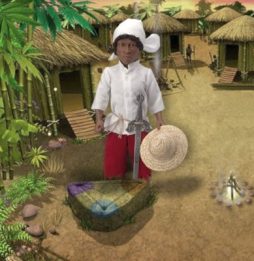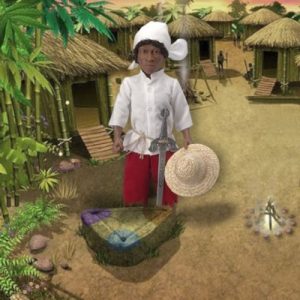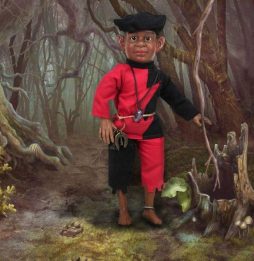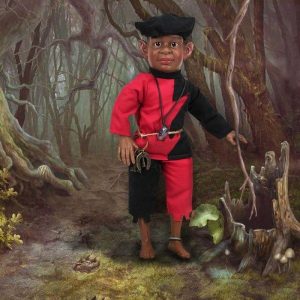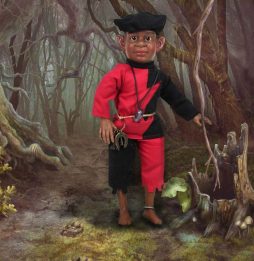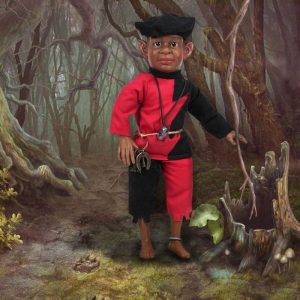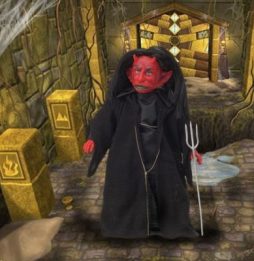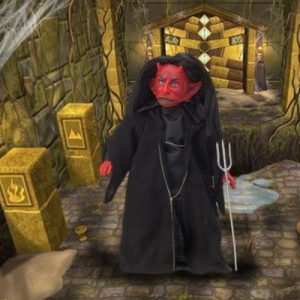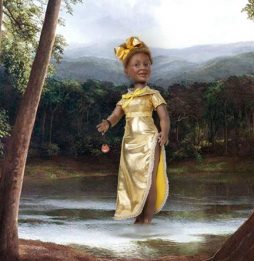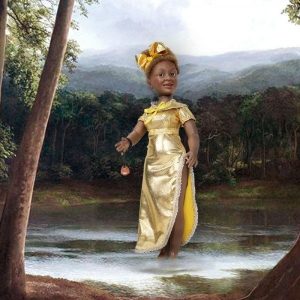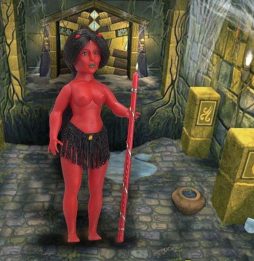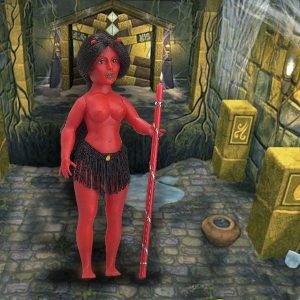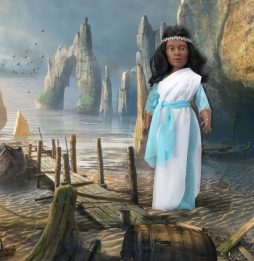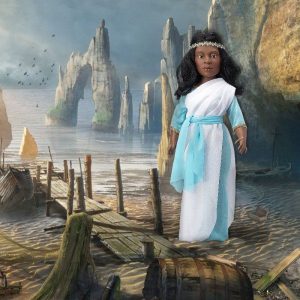YEMAYA NEGRA
Belleza, Protección, Fecundidad..
Pataki de Yemayá Ayaba ti gbe ibu omi.Yemayá, la madre de la vida, es dueña de las aguas saladas en donde vive rodeada de moluscos y peces. Se engalana de conchas y madreperlas, sus colores son el azul claro y el blanco. Es una mujer de extraordinaria belleza y suele vestir ropas transparentes, agitando sus sayas, cual olas marinas. Al igual que otros Orishas, se sincretiza y se nombra de formas diferentes según países, por ejemplo:
Beauty, Protection, Fecundity.
En cuba se sincretiza en la Virgen de Regla, patrona del puerto de La Habana y también adopta nombres como Mamá Umbo, Nboma, Mamá Kalunga, etc.
En Santo Domingo es Metré Silí, adornada siempre de perfumes y lujosos trajes.
En Brasil, Lemanjá es la reina de los mares ondulantes y se sincretiza con la Inmaculada Concepción. Sus hijas visten de azul y rosado y se muestran orgullosas de ella.
El día de su fiesta es el 8 de Diciembre, su día de la semana el lunes y su color de vela el blanco, color del vestido blanco y azul, atributos: Abanico, siete pulseras de plata, remos, llaves, media luna, anclas, y todo tipo de frutas. Hombres y mujeres, caen hechizados ante la deslumbrante belleza de Lemanjá y se dice que quien la ha visto, jamás la ha olvidado. En la Umbanda, Lemanjá, es una moza bonita, ataviada con trajes transparentes. Su saludo es odó-lás y es considerada como madre de todos los orixas y de todo lo que existe en la tierra. Aquí , su día es el 2 de Febrero, fecha en la cual le regalan con grandes festejos.
Su hijo fue Changó, el cual intentó enamorarla, y ante la ofensa, lo llevó al mar, provocando una tormenta y diciéndole: Yo soy tu madre, respétame, ante lo cual, Changó le pidió perdón y madre e hijo se abrazaron. Omi-O-Yemayá y Alodde.
Se recomienda que se le rodee de sus atributos según las costumbres de cada país.
Pataki de Yemayá Ayaba ti gbe ibu omi.Yemayá, the mother of life, owns the salty waters where she lives surrounded by mollusks and fish. It is decorated with shells and mother of pearls, its colors are light blue and white. She is a woman of extraordinary beauty and usually wears transparent clothes, waving her skirts, like marine waves. Like other Orishas, ??it is syncretized and named in different ways according to countries, for example:
In Cuba it is syncretized in the Virgen de Regla, patron of the port of Havana and also adopts names such as Mama Umbo, Nboma, Mama Kalunga, etc.
In Santo Domingo is Metré Silí, always adorned with perfumes and luxurious costumes.
In Brazil, Lemanja is the queen of the undulating seas and syncretizes with the Immaculate Conception. Her daughters wear blue and pink and are proud of her.
The day of your party is December 8, your day of the week on Monday and your candle color the white, color of the white and blue dress, attributes: Fan, seven silver bracelets, oars, keys, half moon, anchors , and all kinds of fruits. Men and women, fall spellbound before the dazzling beauty of Lemanja and it is said that whoever has seen it, has never forgotten it. In the Umbanda, Lemanja, is a pretty girl, dressed in transparent suits. Her greeting is odó-lás and she is considered the mother of all the orixas and of everything that exists on earth. Here, your day is February 2, date in which you are given great festivities.
Her son was Changó, who tried to make her fall in love, and before the offense, took him to the sea, provoking a storm and saying: “I am your mother, respect me”, before which Changó asked her forgiveness and mother and son embraced. Omi-O-Yemayá and Alodde.
It is recommended that you be surrounded by their attributes according to the customs of each country.
